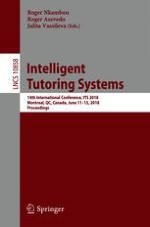2018 | OriginalPaper | Buchkapitel
Empirical Investigation of Cognitive Load Theory in Problem Solving Domain
verfasst von : Kazuhisa Miwa, Hitoshi Terai, Kazuaki Kojima
Erschienen in: Intelligent Tutoring Systems
Aktivieren Sie unsere intelligente Suche, um passende Fachinhalte oder Patente zu finden.
Wählen Sie Textabschnitte aus um mit Künstlicher Intelligenz passenden Patente zu finden. powered by
Markieren Sie Textabschnitte, um KI-gestützt weitere passende Inhalte zu finden. powered by
